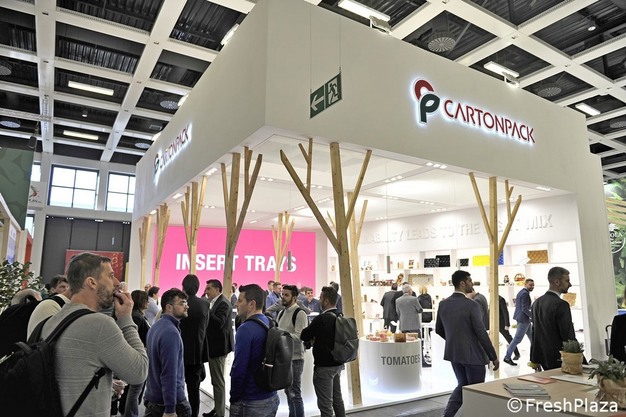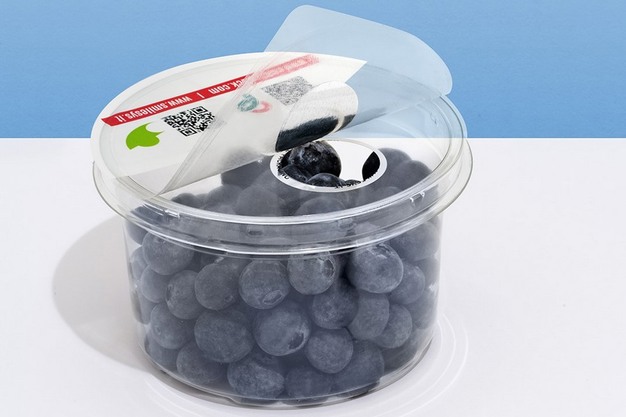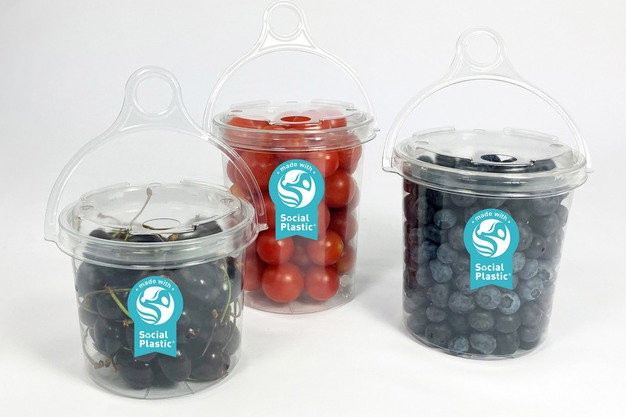In 2023, much has been said and is still being discussed about the importance of 'sustainability' in packaging production. In recent years, the sector most directly affected by the environmental transition has been the agri-food industry, where fruit and vegetables certainly play the most important and visible role.
Recent debates in the European Commission and in the technical tables of the European bodies responsible for the subject have highlighted the profound complexity of the issue. The changes to which the entire supply chain is being subjected represent a systemic shock, often with undesirable side effects (see the protests by farmers across Europe in recent days). They are certainly transitions that involve major economic sacrifices, investments that are sometimes thwarted, and compromised solutions.

The CartonPack Group - made up of Carton Pack, Smilesys, Decapulp, and Ondapack - is facing these inevitable changes with a positive spirit of contribution because change must be managed and metabolized rather than fought with an enormous waste of energy. Protection of the environment and sustainable development are objectives of common interest in order to guarantee better living conditions for everyone and for future generations.
"The synergies we are creating in our industrial group," says Massimiliano Persico, Marketing Director, "have the dual objective of pursuing sustainable practices and policies aimed at minimizing the environmental impact of our production activities and designing packaging that is easy for consumers to dispose of and recycle. We share the vision of a regenerative society, and the right mix of materials to create eco-sustainable packaging is only possible by combining different skills and technologies". The CartonPack Group has always had a holistic approach to the term 'sustainability': in limiting costs for the consumer, respecting technologies in the supply chain, and guaranteeing available, certified, and high-performance materials.
Papersys®: simple but totally eco-friendly packaging
"The first example of this approach will be presented in Berlin, during Fruit Logistica 2024, and it is the Papersys flow-pack packaging, designed and produced by Smilesys, a company that has recently joined the Group," Persico continues. "It is an all-paper film with heat-sealing properties. The paper used is highly resistant to humidity and can be laminated with other compostable materials, such as cellophane or linen netting, for different applications. The great advantage of this type of packaging is that it can be used on standard flow pack packaging lines with sealing grippers: an eco-design product that is fully biodegradable and, therefore, does not require complex technology or investment to use.
The ability to apply any graphic layout (up to 10 colors) adds to the features of this simple yet completely eco-friendly packaging. Sustainability is also reflected in the low cost of upgrading from standard PP or PET plastic film. The formats that can be packaged with Papersys are many and varied, and it is particularly suitable for packaging vegetables such as copper tomatoes, asparagus, and peppers or herbs in cardboard trays. The first packers in the Dutch and German markets immediately saw the simplicity of switching from standard flow packaging to Papersys and the numerous advantages of offering biodegradable packaging to a market that is increasingly aware of environmental sustainability and recycling issues.
Snack Bucket®: container with dispensing system, reclosable in PET
"The second example is, paradoxically, a plastic product," explains Persico, "the Bucket BK product, made of Social Plastic®, finds its most innovative application in collaboration with resealable system technologies designed and produced by Smilesys. A simple film just a few microns thick, appropriately branded, and the innovative snack bucket with a dispensing system, reclosable in PET, is born. The closure system is certified for food contact and can be applied to any standard heat-sealing machine. In addition to eliminating 20% of the plastic used in a normal lid (which is also available in a Social Plastic® version), the resealable film allows a more modern and trendy use for a young market accustomed to on-the-go consumption, which has grown steadily in recent years in line with the growing need to consume so-called healthy, fresh and safe food.

The CartonPack Group continues to invest in the search for alternative sources of supply to support the recovery and recycling of polluting materials and to support social projects in developing countries. Thanks to a long-term collaboration with Plastic Bank, a channel for the recovery and reuse of RPET has been established in an area severely affected by the pollution caused by plastic waste dumped in the environment: Egypt. The African collection centers send the recovered raw material to local recycling centers, which in turn send the RPET flakes to the Rutigliano extrusion plants.

"We are the first and only packaging manufacturer in the fresh produce market that has taken action to put a new value on post-consumer plastic waste, with more decisive action in favor of environmental and social sustainability, in line with the goals set by the UN (SDGs)," concludes Persico.
The CartonPack Group will be exhibiting at Fruit Logistica (Berlin, 7-9 February 2024) in Hall 4.2 / Stand B-13.
For more information:
[email protected]
